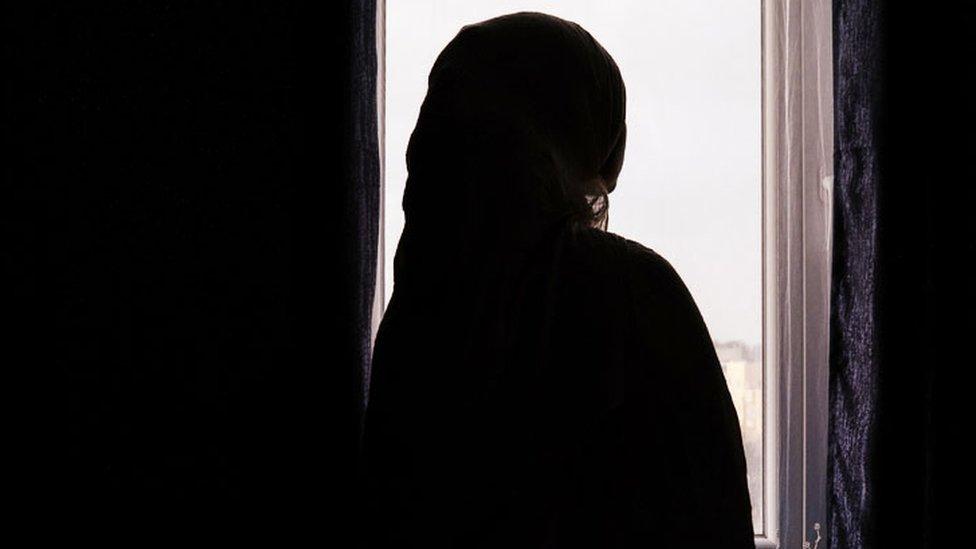Somali shock as Mogadishu mayor Madale filmed beating partygoers
- Published
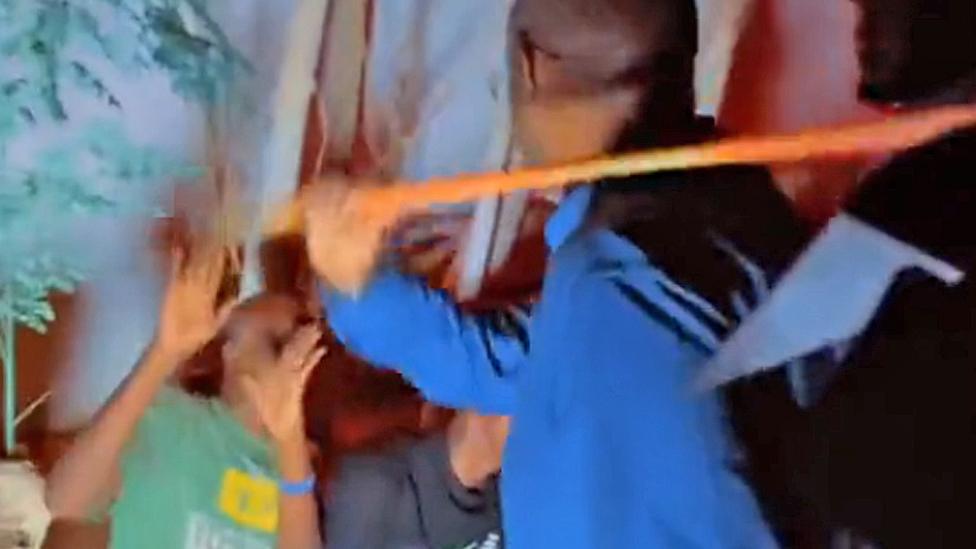
The video of the mayor flogging those hanging out at a Lido Beach nightclub has caused a stir
The mayor of Mogadishu is taking no prisoners when it comes to his recent crackdown on drugs in the Somali capital - literally.
Instead Yusuf Hussein Jimale has taken to the whip - as evidenced by a video in which he is seen lashing a group of young men and women.
They flinch away as he hits them with a long stick, accused of smoking cannabis, shisha - the sweet-smelling herbal tobacco - and drinking alcohol in a nightclub on the city's famous Lido Beach.
Mogadishu, one of the most dangerous cities in the world with daily dangers of attacks by Islamist militants, is now facing increasing problems with organised gangs.
The authorities believe this is leading to substance abuse - especially among young people - which is why the mayor has set his sights on tackling the problem.
For months there have been raids on restaurants and entertainment venues.
This week the mayor, known more widely by his nickname "Madale", meaning "energetic", banned all traders in the city from selling tobacco and shisha - as well as substances already outlawed in the Muslim country like alcohol.
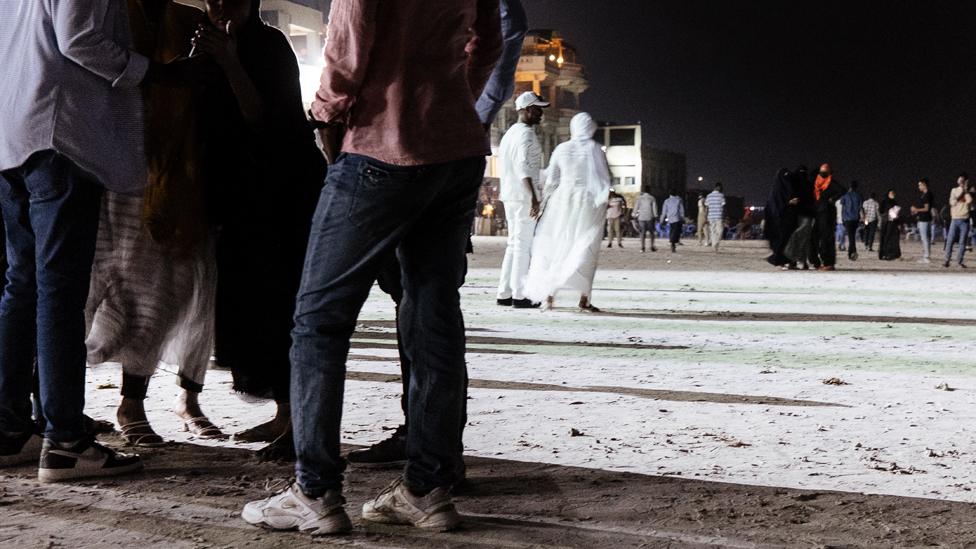
Mogadishu's Lido Beach is a favourite night spot with young people
Madale has defended his stance - and his use of the lash, saying young people need to be disciplined, and a stick is better than a gun.
"Since they were drunk, some of them tried to fight with us and we whipped them. Morally we cannot allow the behaviours we have witnessed and no-one can tolerate that," he said 10 days ago.
Some have been angered by what they deem the mayor's vigilantism - wanting to see evidence of his victims' alleged misdemeanours and demanding due process.
"The mayor took the law into his own hands instead of leaving it to the relevant agencies. The person who commits a crime should be addressed through the prosecution and the judicial system," Muna Hassan, a social affairs activist in Mogadishu, told the BBC.
'Parental discipline'
Others see nothing wrong in the mayor's use of corporal punishment in a country where smacking children is an accepted form of discipline.
Mogadishu resident Mohamed Noor tweeted that he regarded Madale's behaviour akin to that of a parent.
This kind of discipline was better than harsher methods such as arrest and incarceration, which "would turn people into life-long criminals", he posted.
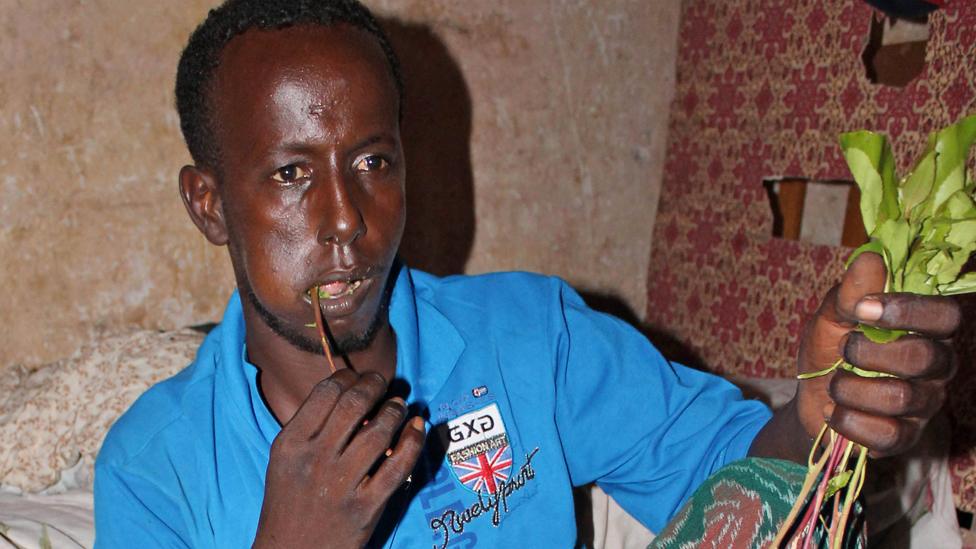
Chewing fresh khat - a mild stimulant which is not banned - is a popular pastime for many Somali men
Mogadishu municipality spokesman said the main thrust of the anti-drug policy was to revoke the licences of bar and restaurants where drugs were found on the premises.
"We are committed to prevent anything that goes against our beliefs, culture and the moral standard of our society," Salah Deere told the BBC Somali service.
However, Manar Ma'lim, whose bar is among those that have been closed, denies these allegations.
"I don't see it as anti-cultural behaviour but rather a move to destroy my business," she told the BBC.
Her belief is that the raid was a ploy to take over her venue, which has been profitable over the last nine years as it is popular with young people. So angry is she about the move that she said in a Facebook post she planned to leave the country.
The authorities deny anything untoward about the crackdown, saying the mayor's focus is just about flushing out drugs for good.
Though some question why the narcotic leaf khat is not on his agenda, given its massive popularity.
After fresh khat shipments arrive in Mogadishu by plane each day, many men go to chew the leaf for hours - it acts as a mild stimulant, making chewers initially talkative and social. It is especially popular with those serving in the security forces.
Some Somalis believe its long-term effects - dramatic mood changes and depression amongst them - are destroying families and would like to see it banned.
Related topics
- Published27 December 2022
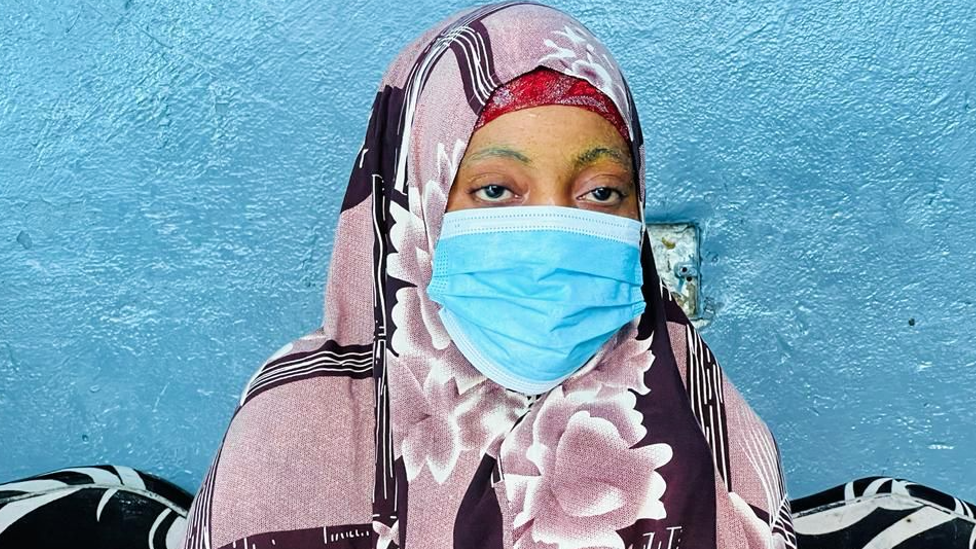
- Published23 March 2023
